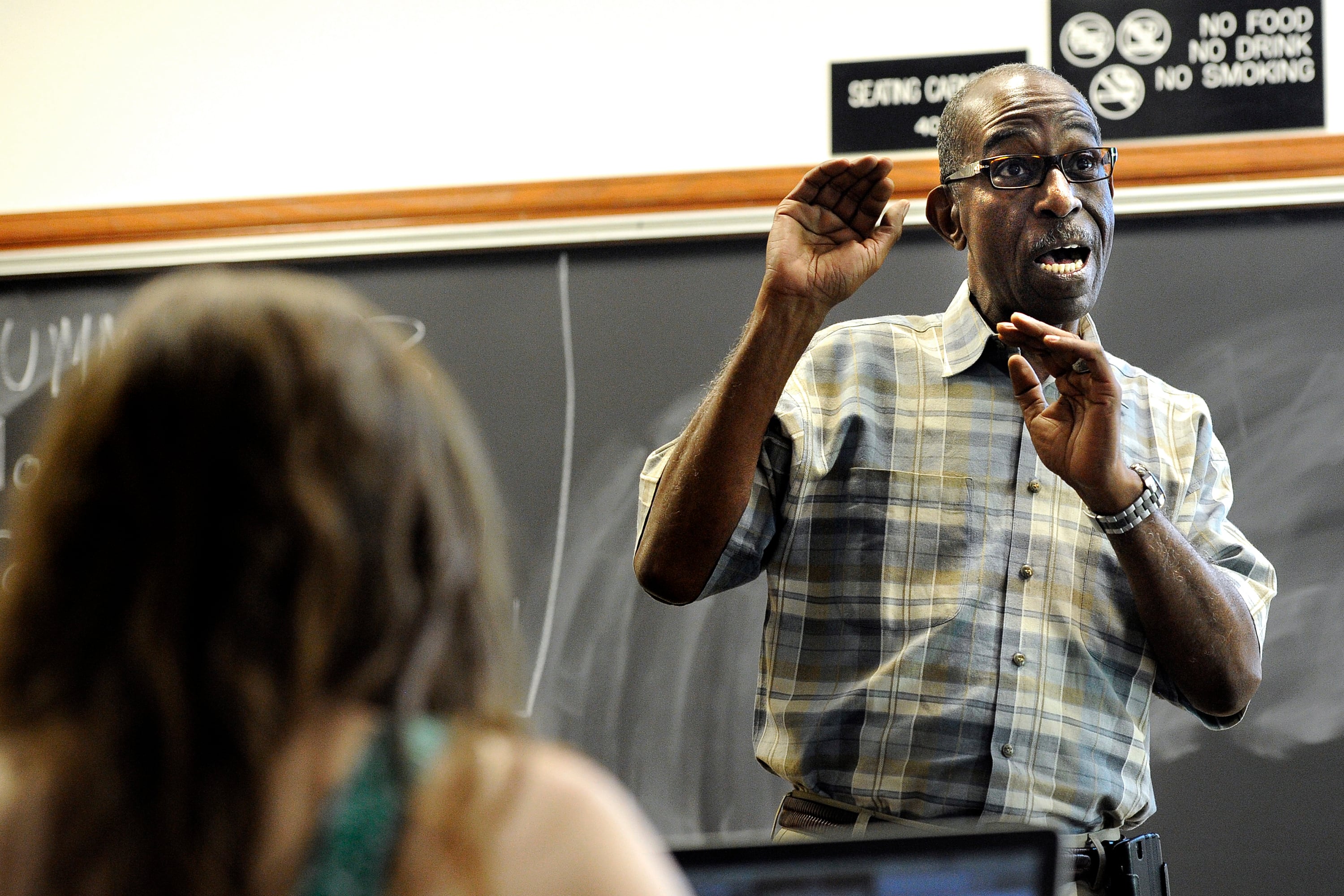In a state that’s become increasingly diverse, the professors who teach at Colorado’s four-year colleges are overwhelmingly white.
Of the 3,500 professors who have tenure, just 15 of them are Black women. Another 38 are Black men.
Hispanic students now make up about 20% of the state’s universities. But Hispanic professors? Less than 8% of all tenured professors across the state.
In one area Colorado has similar representation: Asian faculty. Asians represent 6.4% of tenured faculty compared with 4% of students who attend the state’s four-year universities.
Who teaches students matters. Studies show that it affects a student’s sense of belonging, and whether students and families see colleges as being for them. Advocates say that diversifying faculty also would help diversify enrollment and provide role models.
Last month, professors, advocates and social media zeroed in on faculty diversity after the University of North Carolina at Chapel Hill board of trustees denied a tenured job to journalist Nikole Hannah-Jones. Commenters called out the tiny percentage of tenured faculty nationally who are Black women.
White men dominate the ranks of tenured professors at the state’s 12 four-year colleges. At each of Colorado’s public universities, whites make up at least 70% of tenured professors.
The diversity of faculty, especially those who have tenure and thus job security and freedom to express themselves, is important on campus, said Maria del Carmen Salazar, a University of Denver professor of curriculum, instruction and teacher education.
A diverse faculty signals to various communities that schools are open to them and there are opportunities to aspire to, del Carmen Salazar said.
Research also shows that faculty diversity promotes a sense of belonging when students do attend a school. del Carmen Salazar said students have said that her presence at the campus has opened doors for them.
The issue of representation boils down to opportunity, del Carmen Salazar said. Fewer people of color earn advanced degrees, but colleges often don’t prioritize hiring people from diverse experiences.
“There are obstacles and opportunity gaps along the way,” she said. “If they don’t attend college, then they can’t graduate and get through the pipeline to get into graduate school, much less a doctorate, so the gap really begins right at the beginning stages and persists all the way through.”
She added that “it is absolutely a false narrative” that colleges don’t have qualified candidates of color for positions. She suggested schools create search committees that prioritize diversity.
del Carmen Salazar also warned that statewide numbers might include international faculty, who don’t necessarily represent the experience of students who grew up in the state.
“We are often role models of what students can accomplish,” said del Carmen Salazar, who is a first-generation Mexican immigrant who graduated from Denver Public Schools. “It’s essential to bring in people who look like students, but also people who share their lived experience.”







